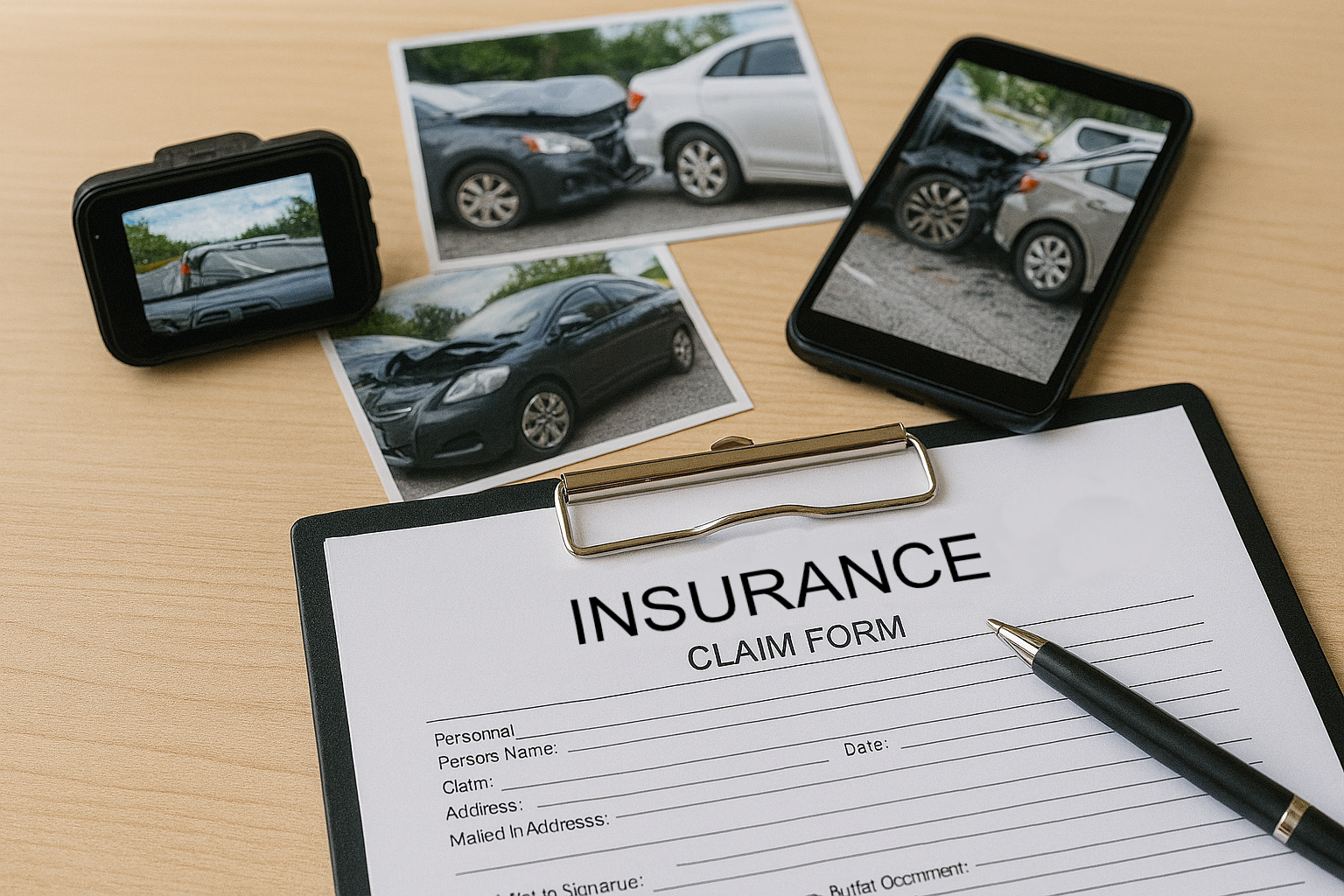After a car accident in Tennessee, the insurance adjuster’s job starts quickly. Yours is to avoid mistakes that weaken your claim. Adjusters are trained professionals who gather facts, evaluate risk, and look for ways to limit what the insurance company pays. A calm, informed approach helps you protect yourself.
Below are practical do’s and don’ts you can follow without needing legal jargon. If at any point you feel unsure or pressured, you can pause the conversation and seek legal guidance.
Earlier articles in this series (read these first if you missed them):
- How to File a Car Accident Insurance Claim in Tennessee
- Who Pays for Damages After an Accident in Tennessee?
- Uninsured Motorist Coverage: Why Every Tennessee Driver Needs It
1. Before You Speak With an Insurance Adjuster
Do:
- Gather your basic facts: date, time, location, vehicles involved, weather, responding agency, and the report number if you have it.
- Organize your photos, witness names, medical visit receipts, and any written notes you made right after the crash.
- Read through your own policy declarations page so you know what coverages apply (liability, collision, MedPay, UM/UIM, rental, etc.).
Don’t:
- Rely on memory alone for details you wrote down (numbers can drift over time).
- Guess at injuries you have not had medically evaluated yet.
2. First Contact From the Other Driver’s Insurance
Do:
- Confirm the insurance adjuster’s full name, company, claim number, mailing address, and call-back phone number. Write it down.
- Provide only the core facts: who, where, when, and the basic sequence of events.
- Keep your answers short, accurate, and neutral (“The light was green,” “I was traveling about 30 mph,” “Impact was to the rear bumper”).
Don’t:
- Volunteer extra commentary (“I’m fine,” “I was kind of distracted,” “I might have been speeding a little”).
- Speculate about fault. In Tennessee, fault allocation can reduce or bar recovery if you reach 50 percent. Let the evidence develop.
- Agree to a recorded statement on the spot if you feel unprepared. You can politely say you will call back after reviewing your notes.
Sample polite deferral:
I’m happy to cooperate. I’d like to review my notes first and will follow up to schedule a recorded statement.
3. Talking About Injuries
Do:
- State that you are still being evaluated if treatment is ongoing.
- Mention any symptoms you have actually experienced (pain location, stiffness, headaches, dizziness) but keep it factual.
- Seek medical care early and follow doctor instructions; gaps in treatment can be used to argue you were not hurt.
Don’t:
- Downplay symptoms (“It’s nothing”) or diagnose yourself (“Just a sprain”) before a professional evaluation.
- Provide your full medical history unrelated to the accident unless and until appropriate. Stick to accident-related issues.
- Accept a quick settlement before you understand the full scope of your injuries and future care needs.
4. Property Damage Discussions
Do:
- Get an independent repair estimate if possible.
- Photograph all sides of the vehicle, interior damage (airbags, seat damage), and any personal property affected (child car seats, phone mounts, etc.).
- Ask how diminished value claims are handled if the vehicle is repairable but newer or previously undamaged.
Don’t:
- Assume the first valuation is final. Politely challenge missing options or incorrect mileage.
- Sign a property damage release that also waives bodily injury claims (read it carefully; they should be separate).
5. Documentation Habits That Help
Do:
- Keep a simple claim log (date, who you spoke with, what was requested, next step).
- Save every email and letter in dated folders.
- Track out-of-pocket costs: prescriptions, medical co-pays, mileage to appointments, medical devices (braces, slings), rental car expenses.
Don’t:
- Send originals without making copies or taking clear photos.
- Ignore deadlines. If the adjuster gives a document request date, note it on your calendar.
6. Common Insurance Adjuster Tactics (and How to Respond)
| Tactic | What It Sounds Like | Your Best Response |
|---|---|---|
| Early lowball offer | “We’d like to wrap this up quickly with a check today.” | “I’m still treating and don’t know final costs yet. I’m not ready to settle.” |
| Fishing for admissions | “So you didn’t see them until impact?” | Stick to facts you know. If you aren’t sure, say “I’m not certain” rather than guessing. |
| Minimizing injuries | “You went to urgent care only once?” | “That was the first evaluation. Follow-up appointments are scheduled.” |
| Pressing for recorded statement now | “Let’s just record quickly while I have you.” | “I’d like to schedule that after I review my notes.” |
| Suggesting you don’t need help | “These are straightforward claims.” | “Thank you. I’ll review everything and decide what I need.” |
7. What To Avoid Saying
| Phrase to Avoid | Why |
|---|---|
| “I’m fine” | Can be used to dispute later injury complaints. |
| “I think it was partly my fault” | Fault is a legal conclusion; premature admissions can reduce recovery. |
| “I probably don’t need a doctor” | Delayed care = argument that injuries are unrelated or minor. |
| Guesses (“Maybe 55 mph”) | Inconsistent estimates hurt credibility later. Give ranges only if accurate. |
8. When to Consider Getting an Attorney Involved
You may want professional help if:
- There are serious injuries, hospitalization, or long-term symptoms.
- Fault is disputed or multiple vehicles are involved.
- The other driver was uninsured or underinsured (see our UM coverage article).
- The insurance adjuster is pressuring for a quick settlement before you finish treatment.
- You receive broad medical record requests that seem unrelated to the accident.
An attorney can handle communications, gather evidence (photos, witness statements, medical records), and make sure you do not settle for less than current and future needs.
9. Do’s and Don’ts Summary and Conclusion
Do: stay calm, verify identity, document everything, be factual, seek medical evaluation, review releases, keep treatment consistent.
Don’t: speculate, rush recorded statements, accept early offers, minimize injuries, sign combined releases, or ignore ongoing symptoms.
If you or someone you know is dealing with an insurance adjuster after a car accident in Tennessee, Stillman & Friedland is here to help. Call us at 615-244-2111 or reach out through our online contact form.
Because we care,
Stillman & Friedland







